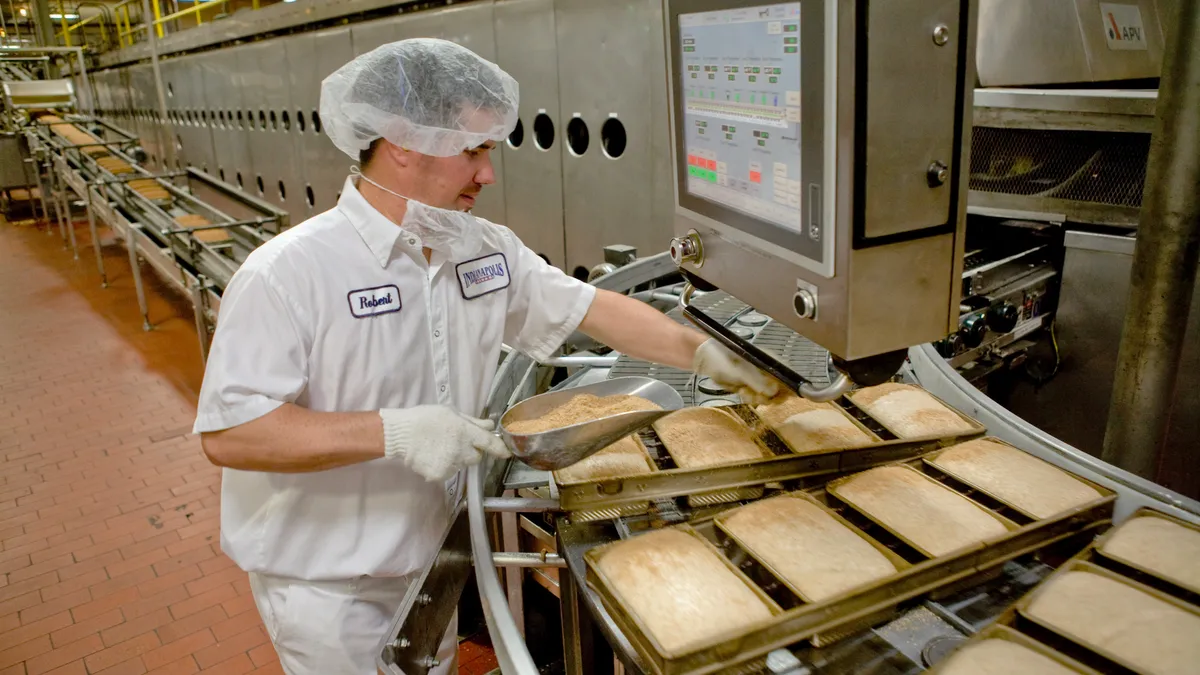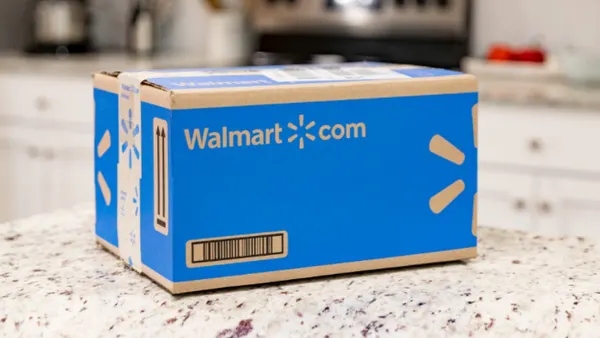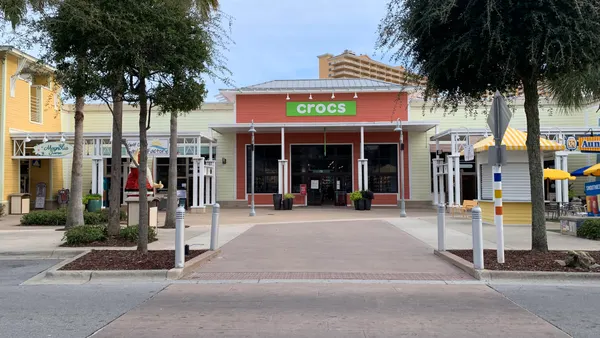The CPG manufacturing industry is ready and able to keep working in the pandemic, heads of trade associations told Food Dive.
"No industry is better positioned than a 24/7 industry," Geoff Freeman, president and CEO of the Consumer Brands Association, told Food Dive. "...We're used to that aspect. We're used to periods in time where there's much more demand, whether it's around the Super Bowl, whether it's around March Madness, whether it's around the holidays, you know, we're used to having to ramp things up. So no one was perfectly prepared for this situation, but no one is better positioned than the broader grocery industry."
The Consumer Brands Association, until recently known as the Grocery Manufacturers Association, represents the CPG industry — food and beverage companies, as well as home and personal care manufacturers.
While Freeman says the industry is used to increased demand, in recent weeks it has been greater than any holiday or sporting event. Freeman said some members have seen their orders increase by 700% as Americans shop for food to have at home while sheltering in place.
Consumers are stocking up on all kinds of food, with an emphasis on pantry staples and snacks. During the week ending March 14 — right before many offices, schools and places of social gathering shut down — sales of dry beans were up 230.5%, canned black beans 150.4% more, soup increased by 126.6% compared to a year before, according to Nielsen. Snacks and other indulgences also saw a bump, with sales of potato chips up 29.6% and ice cream increasing 23.1%.
A comprehensive report released Monday by a coalition of 21 food and beverage industry groups — including the Consumer Brands Association and the American Bakers Association — found that the wider industry, from farms to factories to grocery stores is responsible for nearly 47 million jobs, $2.27 trillion in wages and $885.29 million in taxes. The sector's health is vital to the nation's economic health, representing roughly a fifth of the nation's economic activity, the report found.
Freeman said the industry is already geared to ensure worker health, even in these times. He said federal food and beverage manufacturing regulations already mandate some of the policies recommended to prevent virus transmission, like hand washing and sanitizing equipment. Also, many of today's modernized factories have more automation, Freeman said. They aren't the factories of yesteryear with people crowded around a conveyer belt, and "there is much more social distancing already happening in these facilities."
Freeman said that there seems to be a kind of paradox right now. On one hand, people are being told to stay home and not go out. But on the other, this spike in consumer demand is necessitating that people who work throughout the CPG industry — from those in factories to those along the supply chain and in grocery stores — to get out of the house and keep working.
The wider industry needs to work toward ways to make these employees feel more appreciated, Freeman said. Some companies like PepsiCo and Mondelez are beginning to take some of these steps, including allowing them to self-quarantine without losing sick days, offering bonuses for working despite the virus threat and paying them if they need to take time off work to watch a child whose school has closed.
"These are the heroes of this battle alongside obviously the healthcare workforce, which is doing such an extraordinary job," Freeman said. "The people that are keeping these essential services up and running are heroes, and we need to ensure that they understand that we as Americans know that, and that we appreciate that."
Robb MacKie, president and CEO of the American Bakers Association, told Food Dive the association's members, which include bakers, ingredient suppliers, equipment manufacturers and those who make packaging for baked goods, are "at full capacity. They're running all hours. They're taking the responsibility to get basic, essential foods into their communities very seriously. ...These are our unsung heroes."
The ABA has been working closely with its members since the outbreak began in earnest in the United States. The association has held webinars on best practices and has worked to connect CPG companies with co-packers who primarily serve restaurants.
MacKie said the association has also kept tabs on state and local regulations that may impact the industry, including curfews, bans on large gatherings and shipping reductions. He said that policymakers have acted quickly to allow manufacturing and distribution to continue as needed.
Even though the outbreak is causing challenges to the industry, MacKie said he is optimistic that bakers will be able to get through it and produce the products consumers want. There are no coronavirus-related shortages of the basics, MacKie said.
"As long as we have the ingredients we need, there should be no widespread issues," he said.















